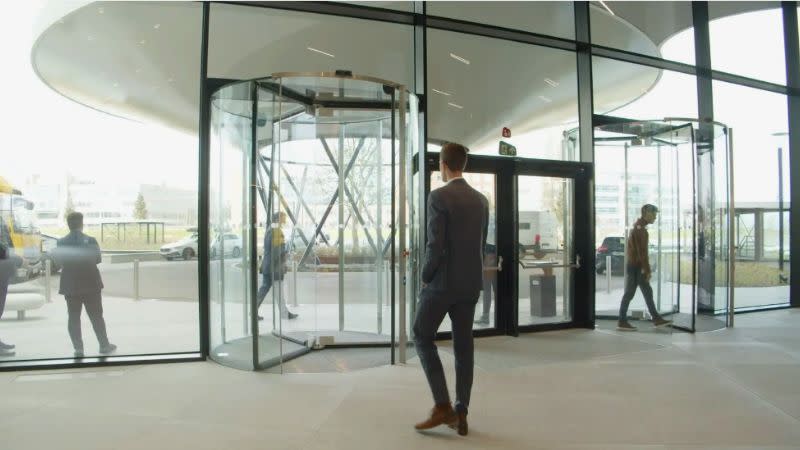
NOMINATIONS CLOSE SEPTEMBER 12 RECOGNISING THE INDIVIDUALS BEHIND THE PROJECTS
NOMINATIONS CLOSING SEPTEMBER 12 URBAN LEADER AWARDS
Resources
Newsletter
Stay up to date and with the latest news, projects, deals and features.
Subscribe
Big changes are under way internationally in the way countries protect people against terrorism and intruder events occurring within our built environments and public spaces.
They follow on at a local and practical level from the overarching global response to terrorism—to which Australasia is party—which subscribes to the laudable four Ps principles to:
Prevent: To stop people becoming terrorists or supporting terrorism
Pursue: To stop terrorist attacks happening
Protect: To strengthen our protection against a terrorist attack
Prepare: To minimise the impact of a terrorist attack.
These are eminently sensible measures at a macro level.
But it is at the local and practical level, however, that change is occurring that facility designers, owners, managers and tenants of facilities will be increasingly focussed upon.
These changes are likely to go far beyond existing “duty of care” obligations, for both workers and visitors, in order to future-proof their facilities.
One of the clearest harbingers of such change is the legislation known as Martyn’s Law in the UK, in tribute of Martyn Hett who was one of 22 innocent people killed by a homemade bomb in the Manchester Arena foyer terrorist attack in 2017.
The attack injured another 1017. [Image at top shows a minute’s silence in Manchester for the victims of the arena attack.]
Martyn’s mother, Fingen, campaigned for legislative change to protect people going about their peaceful business and leisure, so no more families would have to suffer like hers did.
The legislation in its present form will place a requirement on those responsible for specified locations to consider the threat from terrorism.
The scope of the Bill includes premises used for entertainment and leisure, retail, food and drink, museums and galleries, shopping centres, sports grounds, visitor attractions, temporary events, places of worship, health, and education.
Different requirements will apply for different capacity venues including those that can host 100 to 799 people, and for venues that can host 800 or more. Venues below 100 are exempt.

A local comparison is relevant to gauge just a few types of venues that would be affected if such laws were in the future to apply to similar places in Australia and New Zealand.
Here, for example, a total of more than seven million children and university students are studying—schools and universities are covered by the planned legislation.
A similar total of more than seven million attend sporting events once a year. Live entertainment attracts more than 25 million. Both countries have a combined total of more than 1750 shopping centres.
So you can see we have many of the same issues and challenging sites that are being addressed by Martyn’s Law, which will require such venues to put measures in place to mitigate the threat of terrorism.
And then there’s Australia’s stock of non-residential buildings, which has now exceeded one million for the first time in history.
Commercial and industrial buildings often contain large numbers of personnel, as well as valuable equipment and data, making them prime targets for terrorists and opportunists.
While not covered by the UK’s Martyn’s Law specifically, it would be prudent for Australia to consider commercial buildings as part of a holistic anti-terrorism strategy for the built environment.

Security measures to meet Martyn’s Law will include implementing security systems, staff training and clearer processes for coping with threats.
An inspection regime will be put in place by the UK Government and the regulator will have full powers of entry into any qualifying location.
Sanctions will range from a fine or permanent closure of the location to prosecution.
Non-compliance is also likely to bring profound reputational risks implicit in a failure of risk management.
As a member of a global organisation focussed on layered entrance and building security in more than 27 countries worldwide, our experience affirms the need for clear controls because regulation and awareness of terrorism as a real issue, across not only the UK, but as part of our own national awareness and planning.
There have been 14 terror attacks in the UK since the start of 2017.
The threat picture is complex, evolving, and enduring. As I write this piece in mid-2024, the current national threat level in the UK is “substantial” —meaning an attack is likely.
Australia’s current National Terrorism Threat Level is “possible”.
Not that many years ago it would have been more like “inconceivable”.
So we have truly left our Age of Innocence as a nation, when we were happily isolated by distance from the worst excess of a troubled world.

As security and entrance specialists, we at Boon Edam Australia concur with the findings of our colleagues in the UK, as well as the recommendations from the broader industry group there, the UK Automatic Door Suppliers Association.
They correctly wish to anticipate change, by being aware of the likely downstream needs to future-proof our facilities by strengthening our protections against a terrorist attack.
The draft Terrorism (Protection of Premises) Bill is due to pass into law this year, after a review of submissions.
As a signpost to the future, it makes sobering but insightful and necessary reading for those of us who must plan for our role in an evolving shared future.
Michael Fisher is managing director of Boon Edam Australia.
The Urban Developer is proud to partner with Boon Edam Australia to deliver this article to you. In doing so, we can continue to publish our daily news, information, insights and opinion to you, our valued readers.
With work environments becoming increasingly global and dynamic, smart, safe entry has become the centre of activity in and around many buildings. Royal Boon Edam is a global market leader in reliable entry solutions. Headquartered in the Netherlands, with 150 years of experience in engineering quality, we have gained extensive expertise in managing the transit of people through office buildings, airports, healthcare facilities, hotels, and many other types of buildings. We are focussed on providing an optimal, sustainable experience for our clients and their clients. By working together with you, our client, we help determine the exact requirements for the entry point in and around your building.
Michael Fisher
Managing director–-Boon Edam Australia Pty Ltd
T: 1300-689-905